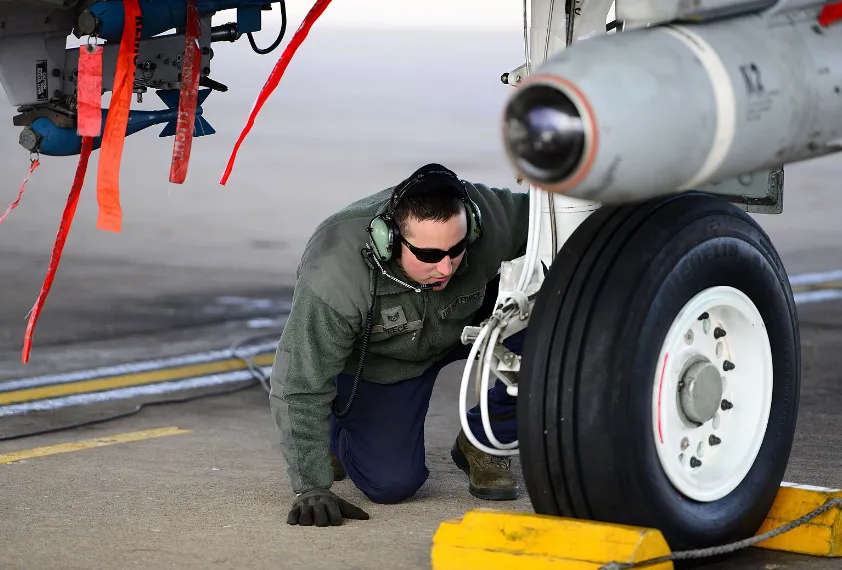5 Reasons Why Proper Aircraft Tire Maintenance is Crucial

Maintaining airplane tires properly is essential to both aviation efficiency and safety. Tires are important, even though they are frequently disregarded, for safe and efficient operations. Well-maintained tires greatly improve an aircraft’s overall performance and safety from takeoff to landing. This article examines five basic reasons for the importance of proper and routine tire maintenance. You can see why it’s crucial to maintain airplane tires in good working order by knowing these factors.
Contents
Safety Assurance
Taking care of aircraft tires is key for safety. Good tires help keep the plane steady and under control while flying, landing, or taking off. Many don’t know this, but bad tires can cause dangerous accidents. For example, if a tire pops during takeoff, the plane could lose control and leave the runway. It could lead to a disaster.
Evidence points out that tire problems are rare, but when they do happen, they can be disastrous. When you keep your airplane’s tires in perfect shape, you cut down these risks greatly. Regular checks and upkeep spot issues such as damage or punctures early on. This way, they can be fixed before they become big problems.
Optimal Performance
The condition of an aircraft’s tires has a major impact on its performance. Safe landings, effective flights, and seamless takeoffs are all guaranteed by well-maintained tires. When tire pressure is at the proper level and tread depth is enough, the aircraft performs better, particularly in harsh weather conditions.
For example, in order to properly stop the plane during landing, the tires need to have the maximum amount of grip. The airplane may slide or not be able to stop at the necessary distance if the tires are underinflated or worn out. By minimizing the tires’ rolling resistance, maintaining ideal tire conditions can also increase fuel efficiency. This implies that the aircraft needs less energy to move, which saves money on fuel.
Cost Efficiency
Frequent tire care can result in significant cost savings. By taking good care of your tires, you may prolong their lifespan and save money on expensive replacements. Ignoring tire maintenance can result in unanticipated tire failures, which can cause emergency repairs and aircraft downtime. Because the airplane is out of commission, there may be fines and lost revenue during this costly downtime. Regular inspections and prompt fixes are examples of preventive maintenance that help you identify small problems before they become larger ones. By being proactive, the likelihood of costly emergency procedures is reduced. Furthermore, because they provide reduced rolling resistance, well-maintained tires increase fuel efficiency. Over time, these fuel savings add up to a substantial amount of savings.
Regulatory Compliance
Tight adherence to aviation standards is necessary when it comes to tire maintenance. If you don’t follow these guidelines, you risk facing harsh consequences, such as fines and having your aircraft grounded. The Federal Aviation Administration (FAA) and other regulatory agencies provide comprehensive recommendations for tread depth restrictions, tire inspections, and pressure checks. You have to satisfy these standards when you perform routine maintenance constantly.
Violation of the law not only results in penalties but also jeopardizes the security of your business operations. To demonstrate compliance during audits and inspections, routine inspections and accurate tire condition documentation are essential. Remaining compliant keeps your company out of legal hot water and preserves your standing in the marketplace.
Passenger Comfort and Experience
Tires that are kept up to date are essential for improving passenger comfort and enjoyment. The state of the aircraft’s tires directly affects smooth landings and takeoffs. Passengers may experience discomfort and anxiety during these crucial moments of flight if they experience additional bumps and vibrations due to worn tires. A flawless flying experience increases customer satisfaction and faith in the airline’s dedication to safety.
Furthermore, passengers’ confidence in the entire experience is increased when they are aware that an airline places a high priority on maintenance. Frequent tire replacement lowers noise and vibration levels within the airplane by ensuring smooth operation. You make the ride more cozy and comforting for everyone on board by paying attention to tire care.
Conclusion
Maintaining the tires on an airplane properly is essential to maintaining flight performance, safety, and economy. Airlines can reduce expenses, avoid mishaps, and enhance aircraft performance by following maintenance procedures. Adhering to regulatory requirements also helps the airline’s reputation and shields it from legal trouble.
Setting tire maintenance as a top priority demonstrates a dedication to aviation operations excellence and safety, not just compliance. By being aware of and putting these standards into practice, you help ensure that everyone’s air travel is safer, more dependable, and more efficient.


